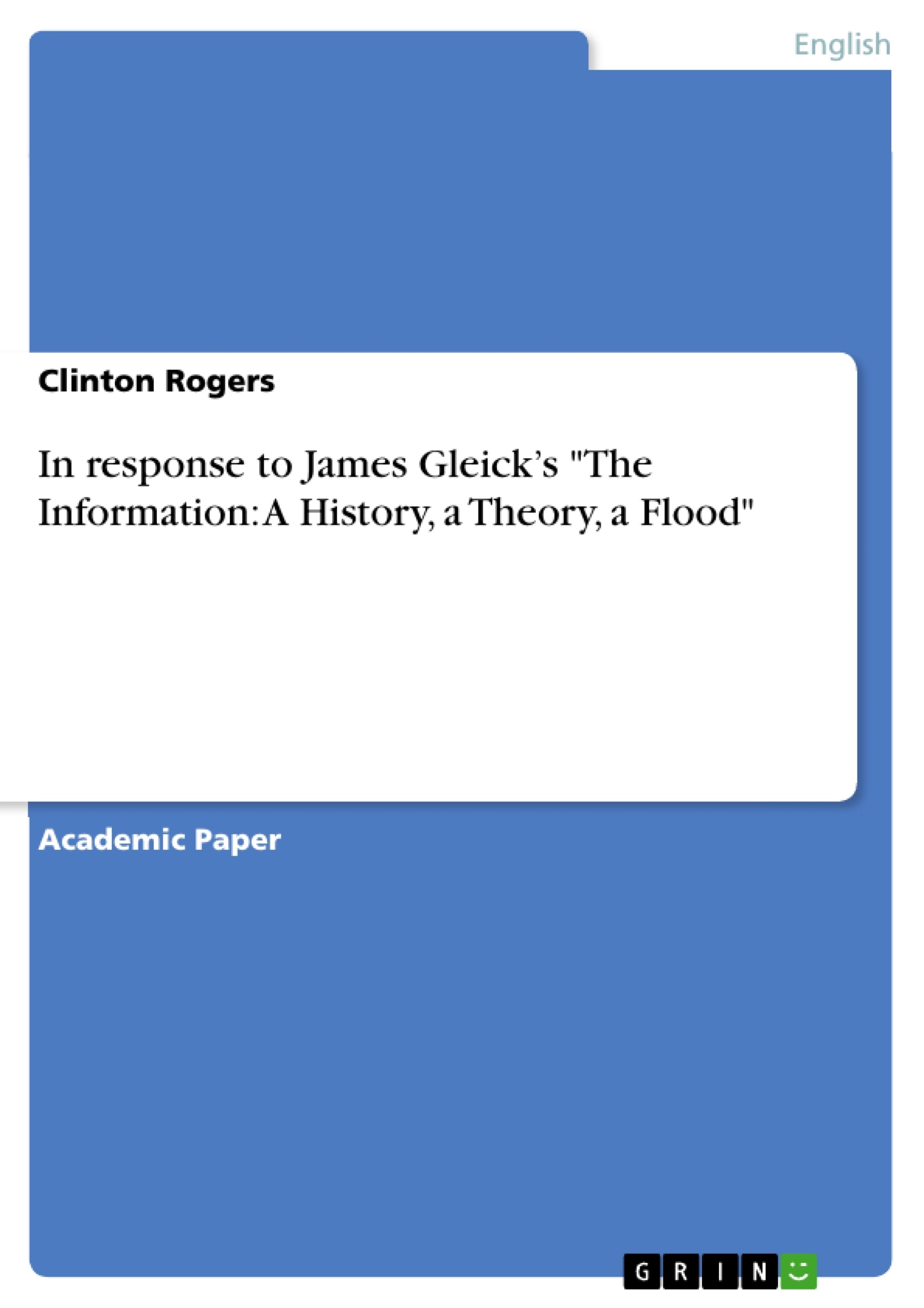In James Gleick’s whirlwind tour of information theory, The Information: A History, a Theory, a Flood(2011), he states that “We have made many towers of Babel.” This sentence seems to present us with a double meaning. Having occurred after a list of the disambiguation links for the term “Babel” in Wikipedia, the “We have made many towers of Babel,” is a statement denoting the number of objects listed with the name “Babel.” On another level, the sentence could be a descriptive statement about the entirety of his book and the long history of information and technology in general. This short and poignant biblical story, no longer than ten or so lines, describes a uniting of all the disparate people groups of the world into a single language that renders communication effortless and using the newest form of architectural technology: bricks, they attempt to build a tower to the heavens. This could be interpreted as an attempt to build towards the highest ideal for mankind or an attempt at meaning-making. God rewarded their hubris with a confounding of their language. But it didn’t have to be God who obstructed their great project, because language itself has proven to be of such an unruly character. We are still building our technological “towers of Babel” and humanity remains confounded in the process. Gleick states “Wikipedia evolves dendritically, sending off new shoots in many directions. (In this it resembles the universe.) (Gleick, 2011)” Discreetly hidden among a description of the transmogrification of the Wikipedia site, which had proved to be an unprecedented source of information for its transmission and utility, this phrase, on a number of levels, seems to encapsulate the evolution of our relationship to information and the many twists and turns, angles and blind spots that this story takes. The analogy of the dendrite is also an apt description of two of the most complex and mysterious systems of information known to man: the telescopic images of the cosmic networks of galaxies and the microscopic, weblike network of neurons in the human brain. The universe of entangled facts to be “searched and processed” for meaning is the way we view the objective world. With every bit of information integrated, we form new understandings, and our knowledge branches out into ever new directions.
Inhaltsverzeichnis (Table of Contents)
- In Response to James Gleick's The Information: A History, a Theory, a Flood
- Wikipedia: A Democratic Internet Community Project
- Language and the Tower of Babel
- The Importance of Writing
- Preliterate Culture
Zielsetzung und Themenschwerpunkte (Objectives and Key Themes)
This text examines the evolution of information and technology through the lens of James Gleick's "The Information: A History, a Theory, a Flood." It explores the challenges and possibilities of communication in a rapidly changing technological landscape.
- The multifaceted nature of information and its impact on human understanding
- The role of technology in shaping our perception of reality
- The complexities of language and its evolution over time
- The challenges of understanding and communicating in a diverse and interconnected world
- The relationship between technology, language, and consciousness
Zusammenfassung der Kapitel (Chapter Summaries)
- The text begins by exploring Gleick's observation that "we have made many towers of Babel," highlighting the multifaceted nature of information and its potential for both unity and division.
- The second chapter focuses on Wikipedia, a democratic internet community project, and its evolving nature as a constantly changing and unpredictable source of information.
- The third chapter delves into the complexities of language, examining its role in shaping our understanding of the world and its ability to both unite and confound.
- The fourth chapter explores the importance of writing as a crucial invention in the development of information processing, examining its impact on critical thinking and the objectification of thought.
- The final chapter delves into the challenges of understanding preliterate culture, highlighting the limitations of our knowledge and the difficulty of interpreting historical records.
Schlüsselwörter (Keywords)
The text focuses on information theory, technology, language, communication, consciousness, writing, preliterate culture, and the evolution of knowledge.
- Quote paper
- Clinton Rogers (Author), 2022, In response to James Gleick’s "The Information: A History, a Theory, a Flood", Munich, GRIN Verlag, https://www.grin.com/document/1175911




